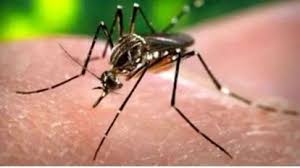
Health Ministry Issues Advisory Amidst Zika Virus Reports: Urges Vigilance and Proactive Measures
The Union Health Ministry has issued an advisory to all states in response to recent Zika virus cases. This advisory underscores the need for heightened vigilance and proactive measures to curb the virus's spread.
Zika virus, a mosquito-borne illness first identified in monkeys in Uganda in 1947, was later reported in humans. It has since spread to Africa, Asia, and South America, with a significant epidemic occurring in the Americas from 2014 to 2017, including outbreaks in the US in 2015 and 2016. Recently, cases have emerged in India, affecting states like Kerala, Telangana, and Maharashtra.
Symptoms of Zika Virus
Many people infected with Zika virus are asymptomatic. When symptoms do appear, they are usually mild and include rash, fever, muscle and joint pain, and conjunctivitis (red eyes), typically manifesting 3-14 days after a mosquito bite. Some regions have also reported increased neurological issues, such as Guillain-Barré syndrome, during Zika outbreaks.
Transmission
Zika virus is primarily transmitted through the bite of an infected female Aedes mosquito. It can also be spread from mother to fetus during pregnancy or childbirth, and while the virus has been found in breast milk, transmission through breastfeeding is not confirmed. Sexual transmission is another route of infection.
Diagnosis
Diagnosis involves RT-PCR testing of blood within seven days of symptom onset. The virus can also be detected in saliva, urine, and amniotic fluid. In urine, it can be identified up to three weeks after symptoms begin. Maternal blood samples may reveal IgM antibodies for confirmation.
Impact on Pregnancy
Zika virus infection during pregnancy can lead to congenital Zika syndrome, causing severe birth defects such as microcephaly (small head size), brain calcifications, limb contractures, increased muscle tone, eye abnormalities, and hearing loss. The risk is higher during early pregnancy. In 2016, the WHO declared a public health emergency due to the impact of Zika on pregnant women.
Dr. Tarakeswari, Chief Medical Director at Fernandez Hospital, emphasized the need for hospitals to maintain vigilance by screening pregnant women for Zika and monitoring fetal growth in those who test positive. Health facilities are advised to appoint a nodal officer to ensure that premises remain free of Aedes mosquitoes.
The WHO recommends testing pregnant women who show symptoms of Zika virus but does not advise routine testing for all pregnant women in endemic areas. If an ultrasound reveals microcephaly, a detailed travel and sexual history should be taken. Currently, there is no vaccine or specific antiviral treatment for Zika virus; management focuses on symptom relief.
Prevention
Preventive measures include protecting against mosquito bites at both community and individual levels. Community actions involve covering water containers, ensuring safe water access, proper waste disposal, and cleanup campaigns. Individuals should wear protective clothing, use permethrin-coated nets, and apply mosquito repellents containing DEET, which is considered safe during pregnancy. Additionally, abstaining from sex or using condoms with partners who have recently returned from Zika-affected areas can prevent sexual transmission.
Dr. Tarakeswari urged continued efforts to prevent the spread of Zika virus and emphasized the importance of community and personal protective measures.